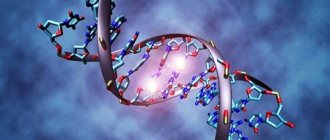Continuation of life is one of the basic human instincts, so the news of pregnancy is always a happy and joyful event for every woman. All the more incredible is the realization that pregnancy becomes an unbearable test for the psyche of a pregnant woman. Medical data says that depression during pregnancy threatens sensitive people with a tendency to stress and melancholic mood, and unstable personalities.
The presence of symptoms of depression is explained by the presence of upset mood and inadequate changes in emotions, which creates addiction to the use of alcohol and psychotropic substances. Depression has a negative effect on the psycho-emotional and physiological state of the body, and, consequently, on reducing the normal development of the baby, so in such cases, contacting a specialist is an absolute necessity.
Depression (if translated, this term means “to crush”, “to suppress”) is a mental disorder that has the following characteristics:
- predominance of negative emotions;
- pessimistic moods;
- decreased level of joy;
- loss of feelings of happiness;
- a feeling of negativity towards others and one’s own life.
In a state of depression, there is a certain physical retardation of movements, decreased self-esteem, with loss of interest in life and habits.
Causes of depression in pregnant women
The human body, by nature, already has all the conditions for favorable gestation and pregnancy, but the subconscious gives us a bunch of problematic situations. The modern pace of life has brought changes to the physiological process of future motherhood. Reinforced certain social norms, moral and moral principles, expressed in the status of women. A pregnant woman has to experience enormous external pressure in a new form. Unwittingly, she becomes a prisoner of her own experiences, driving into her head that after the birth of a child, she can forget about her previous normal life. The birth of a little person who is completely dependent will require a radical change in lifestyle, as well as moral readiness, tolerance and adaptability to a new role.
An important role is played by both moral and physical support from loved ones, spouse and other family members. The underlying causes of depression during pregnancy can be identified:
- unexpected (unplanned) conception;
- unpreparedness for major changes;
- housing problems;
- financial insecurity;
- negativity from the spouse, relatives;
- severe form of toxicosis;
- unstable physical condition;
- unstable psyche;
- lack of sleep and happiness hormones;
- endogenous factors;
- long-term use of sedatives and their overdose;
- hormonal disbalance;
- previous unsuccessful attempts (frozen pregnancy, miscarriages, abortions, etc.);
- increased weakness and fatigue.
Each depression during pregnancy is individual, but it should be kept in mind that it is easily treated. Depression can be congenital or caused by sexual violence, mental and physical abuse. In pregnant women, there is a close connection between the neuroendocrine system and the emotional background, which is under pressure from hormonal changes, which explains the increase in depression.
Differences between depression and bad mood
A bad mood during pregnancy is a variant of the norm, provided that it is periodically replaced by emotional upsurges. A woman can be pleased by watching her favorite movie, eating a treat, taking a walk in sunny weather, or having a hobby.
Depression is persistent and does not go away under any circumstances. A woman is not happy with anything at all, she does not want to communicate with loved ones, go anywhere, and feels unnecessary. When depressed, she experiences either a constant feeling of hunger or a complete lack of appetite.
The help of a psychologist is required if a woman refuses to leave the apartment, has no interest in anything, constantly sleeps or is depressed, withdraws from people, cannot name the meaning of life, does not feel self-confident. She may be inclined to blame herself for everything or, on the contrary, blame others for her melancholy, feels distrust of the whole world, and withdraws into herself.
The extreme stage of depression is a reluctance to live and thoughts of suicide, so the sooner a woman turns to a psychologist, the faster she will be able to cope with this dangerous condition. If lack of interest in life, tearfulness and reluctance to do anything is present every day and nothing brings pleasure, you should sound the alarm.
Symptoms of depression in pregnant women
Mood swings, excessive tearfulness, sleep disturbances, anxiety about childbirth, and nervousness during pregnancy can serve as signals of depression and lead to a deterioration in the well-being of the pregnant woman.
With depression, the following symptoms are noted:
- melancholy;
- irritability;
- reluctance to communicate;
- fast fatiguability;
- apathy;
- suspiciousness and anxiety;
- heightened sensitivity, the presence of tearfulness.
- feeling of constant fatigue;
- acute feeling of hunger or lack of appetite;
- no feeling of joy
- lack of pleasure from life;
- decreased self-confidence;
- fear of going outside;
- low self-esteem;
- constant drowsiness.
The persistent bad mood of some pregnant women exacerbates their feelings of helplessness and worthlessness, leading to suicidal thoughts. In the presence of constant symptoms of depression and negative emotions, the lack of awareness of happiness and joy about the uniqueness of the moment of the birth of a new person entails the need to contact a psychologist.
How to overcome postpartum depression at home
To treat depression at home, we recommend paying attention to the list of mandatory procedures:
- Learn to sleep during the day. To realize this possibility, you can ask your husband to look after the baby or go to bed with the child;
- There is no need to try to do everything, since with a child it is difficult to become an ideal housewife, wife and mother. Primary attention is given to the baby. People around you don't see the mess in your home. You can clean before guests arrive;
- Find pleasure through self-care. Set aside 30 minutes daily for your own needs, meditation, jogging. Manipulations distract from worries related to the child and contribute to the formation of positive attitudes in the brain;
- All problems should be discussed with your husband or relatives. The situation created by depression may not turn out to be a problem after discussing it with a loved one;
- Dusk and lack of lighting create a negative mood. Make your home illuminated;
- Tell your husband how you are feeling. If you don’t share your state of mind with your partner, you will need to constantly lash out at him, swear at every little thing. It is better to immediately explain to the man that the problem is not with him, but with irritability and depression. Your loved one will try to help;
- After a stressful situation, use relaxation methods - yoga, meditation, neurolinguistic programming. The flow of obsessive thoughts needs to be stopped. Sit still, close your eyes and relax, at least for 3 minutes;
- If you are overexcited, relieve stress. Strike a stream of water with your hands, scream at the top of your voice, beat the mattress. The procedures relieve hyperexcitability and alleviate the condition;
- If you can’t cope with depression on your own, contact a psychologist. The prolonged course of the disease leads to disruption of the functioning of internal organs, loss of self-criticism and even delusional-hallucinatory syndrome.
An optimistic approach brings you closer to victory every day. The presence of the Internet allows you to find interlocutors who are in a similar life situation. Communication eases the state of mind and adds positive emotions. Some women find it helpful to rearrange furniture and go to stores.
At a certain period, any pregnant woman becomes whiny, irritable, and sad. Most often this is determined by hormonal changes in her body, and not by prenatal depression, but in some cases it is worth suspecting something is wrong.
The following symptoms may indicate that a woman has prenatal depression:
:
- feeling of own uselessness,
- guilt,
- severe anxiety about the birth process,
- excessive irritability,
- constant fatigue
- fear of becoming a bad mother for the baby,
- difficulties in making decisions,
- difficulty remembering,
- inability to concentrate,
- constant depressed mood
- sleep disorders unrelated to expecting a baby,
- weight gain or loss not due to pregnancy,
- loss of interest in sex.
Some of these symptoms can accompany even a very positive expectant mother, but a complex of such manifestations most often indicates serious problems when it is worth contacting a specialist - a psychologist or psychotherapist.
Depression during pregnancy first trimester
“Period of denial” is what psychologists call depression during the first trimester of pregnancy. A new little life already exists, but the woman does not remember about it or does not pay attention, because she does not feel it (in the absence of obvious toxicosis or threat).
The very beginning is both the easiest and most difficult period of pregnancy. The female body begins to rebuild and prepare to “work in a new way”; absolutely all organs of the body are subject to change, including the nervous system. Stress about the birth itself, the health of the unborn child, the financial component - all this worries a pregnant woman. Very often, depression in the first trimester of pregnancy is closely associated with family discord, lack of opportunity to do what you love, and a sharp abandonment of habits (especially bad ones).
Still, depression can be confused with frequent mood swings associated with hormonal changes in the body and increased sensitivity. Most women begin to notice emotional instability in themselves at the initial stage of pregnancy. This is just one of several signs of pregnancy, due to the onset of hormonal changes in the body. Changes in mood, forgetfulness, lethargy, drowsiness, severe fatigue, these are signs of pregnancy that are normal. If the mood has pessimistic aspects of a protracted nature (more than two weeks), then it is worth sounding the alarm. If a woman thinks that everything is bad and there is no hope, that it will only get worse and worse, this indicates signs of impending depression.
We recommend reading: Colic during pregnancy, Hepatitis C during pregnancy, Food poisoning during pregnancy
No one is able to predict the consequences caused by depression in the early stages of pregnancy. Foreign scientists and doctors have noticed a pattern in the decline in the development of children growing up in an unstable psycho-emotional environment. They noticed that such children may be underweight, developmentally delayed and have sleep disorders. So the expectant mother should consult a doctor in case of prolonged anxiety.
We also recommend reading: Pigment spots during pregnancy
How to overcome prenatal and postpartum depression
With mild postpartum and prenatal depression, you can get out of the condition on your own. Advice from psychologists is based on the following requirements:
What is depressive syndrome and psychosis
The described methods are rational for mild postpartum depression. In advanced situations, antidepressants are required.
Prenatal and postpartum depression are not always sequential conditions. Statistics indicate that 50% of women continue to experience depression after childbirth. In such a situation, a consultation with a psychotherapist is required, since the condition is protracted. It is impossible to cope with it on your own.
Depression during pregnancy second trimester
At this stage of future motherhood, a woman finally feels pregnant. With the advent of awareness, various kinds of thoughts are born in her head about a radical change in her previous life. Psychologists call this stage the search for a lost object. Such an object can be the usual work, colleagues and friends, clubs and entertainment, various hobbies and hobbies. Despite the seemingly destruction of the old way of life, many discover new aspects of a changed life - they take handicraft courses, notice their talent as an artist or singer and musician, and study foreign languages.
We can say that this is the brightest and most active period in the life of a pregnant woman. And if the expectant mother during this period is subject to a pessimistic mood and depressive thoughts, she will have to acutely experience negative emotional outbursts. Back and lower back pain, significant weight gain, breast tenderness, bladder discomfort and frequent urination - all this entails negative thoughts about pregnancy. The harder pregnancy is physically, the more difficult it is for a woman emotionally and psychologically.
Medical statistics say that depression during pregnancy is much more common than depression after birth. Know that these are different depressions and they are unrelated. The presence of depression during pregnancy does not mean its automatic transition to the period after the birth of the child.
Depression in early pregnancy is caused by a combination of several negative factors. Internal restructuring and hormones necessary for bearing offspring play a decisive role in mood changes. The presence of insomnia leads to the inability to fully rest the body. Material troubles and financial problems, lack of understanding and support in the family, all this can become a kind of manifestation for a woman’s unstable psyche. Add to this the anxiety of the expectant mother herself and we get the maximum level of stress and depression.
When receiving news of a new life, it is highly advisable for a woman to protect herself from all external negativity. Choose even ordinary movies and TV shows to watch carefully and thoughtfully. Passion for needlework, knitting, sewing and embroidery can have a positive effect on her emotional state and distract her from unnecessary worries. It must be remembered that often stressful situations lead to poor health of the woman herself and even frozen pregnancy and miscarriages.
Why does prenatal depression develop?
There are many factors that trigger the development of prenatal depression. These include illness during pregnancy, stressful life circumstances (for example, relocation), previous lost or complicated pregnancies, past or present violence, financial difficulties and social instability. According to statistics, about eighty percent of prenatal depression is provoked by troubles in the family and discord in relations with the husband. A common cause of the development of prenatal depression is the personal characteristics of women. Young mothers are often afraid of their emotions and get lost in conflicting feelings. This is especially true at the moment when they are faced with the idealized concept of motherhood accepted in society. “Motherhood is a responsibility...”, “a good mother should...”, “a loving mother must...”, etc.
Sometimes prenatal depression is caused by a pregnant woman's worries about her sex life. The husband, concerned about the well-being of the mother and child, tries to disturb them as little as possible and restrains his sexual impulses. As a result, having sex becomes less frequent than before. The woman feels that she has fallen out of love, that her partner has lost interest in her. This leads to signs of depression.
Depression during pregnancy third trimester
In psychology, this period has an unambiguous name - depression. Now even the most calm and balanced natures may begin to panic. As the birth approaches every day, the prospect for a woman surrounded by pots and diapers becomes more and more colorful. The feeling of short-term loneliness appears more and more often, leading to a feeling of despondency and hopelessness. The appearance of anger at the husband, with his unchanged life, or the mother-in-law with her eternal advice and long nose. During this period, it is important to allow yourself to be weak and in a bad mood for a little while and not tormented by remorse, but to accept yourself as you are.
In recent months, a woman’s physical condition has undergone noticeable changes: a large belly, a serious load on the spine, clumsiness, and heavy weight. In this state, the expectant mother often feels helpless and useless. A feeling of dependence on others, an imaginary lack of interest on the part of the spouse, all this leads to excessive tearfulness, touchiness and irritability.
Often during this period, a woman is attacked by fear of childbirth, which can also cause depression. It is also caused by physical and psychological fatigue accumulated during pregnancy, excess weight, loss of the usual body and former sexuality, dissatisfaction with oneself, anger and irritation with relatives who “do not understand or support anything.”
The strange behavior of pregnant women during a long period of time can manifest itself in a desire for uncharacteristic loneliness, a love of long walks in nature, or an indulgence in needlework and preparing a dowry. It is important at this moment to learn to listen to yourself and your body. If you love and accept yourself in this state, then depression will not bother you. After all, it is so important to devote your thoughts and energy to yourself before the birth of a child. After all, with the arrival of the baby, such an opportunity will not appear soon.
Postpartum depression - what is it?
Postpartum depression tends to be protracted if it does not go away within the first 2 weeks after the birth of the baby.
At the end of pregnancy, the expectant mother becomes passive. The woman loses control over the situation. Within two weeks, adaptation to the changed living conditions takes place. The child demands to eat every 2-3 hours, reacts to wet diapers, and screams for no apparent reason. You need to adapt to this. If a young mother’s body copes with constant stressful situations for 14 days, prolonged depressive syndrome does not occur.
To prevent increased psychological stress in the postpartum period, training courses for future parents are conducted. On them, people prepare for future difficulties physically and psychologically.
Symptoms and treatment for nitrate poisoning
During motherhood, psychological traumas received in childhood come to the surface. Psychologists can even preliminary predict the behavior of a postpartum woman after studying the history of her life in childhood.
In the first days after childbirth, a woman physiologically experiences depression and fatigue. The difference between postpartum depression and this condition is the gradual increase in obsessive thoughts and anxiety. The happy existence of the family during this time period becomes threatened, as the woman strives for loneliness.
A typical depressive period after childbirth occurs in 15% of women, but only 3% are diagnosed. The picture of the disorder is characterized by similar symptoms. Most scientists consider postpartum depression to be an adaptation of the body, but any temporary condition is transitory. The disease has a longer interval.
The presence of depression can be determined by clinical symptoms:
- Activation of heartbeat;
- Headache;
- Irritability;
- Anxiety;
- Insomnia;
- Frequent unexplained mood changes;
- Self-destructive ideas;
- Obsessive states.
Obstetrician-gynecologists consider refusal of outside help to be one of the important signs of a depressive disorder in a woman. Even if the husband wants to alleviate the wife’s condition, the woman refuses. The approach is due to fear for the child’s health, because the husband does not know how to feed and dress. The mother-in-law, despite constant moralizing, also does not have the necessary knowledge to entrust her with the baby.
The approaches described above exhaust the psyche of a young mother and deprive her of her reserve of vitality. Against this background, depression worsens, up to manic-depressive syndrome with the inclusion of hallucinations and delusions. The situation requires hospital treatment under the supervision of specialists.
Depression in the last weeks of pregnancy
The highest point of manifestation of depression is just the moment before childbirth, in the last stages. The girth of the abdomen reaches its maximum, the pregnant woman has no opportunity to fully rest. The focus of thoughts comes down to a speedy birth and the end of all the torment associated with pregnancy. Often this condition is aggravated by the fact that relatives and friends are bombarded with questions of this kind: who are you waiting for, and when will it happen?
Statements by psychologists say that depression at this stage does not harm the health of mother and baby. Remember that the stress that the baby will endure during development in the womb can perpetuate his inability to solve problems in later life. According to observational data, it was revealed that children who have suffered stress develop worse in childhood and lag behind their peers.
We also recommend reading: How to distinguish PMS from pregnancy
You should always remember that the calmer the mother is on the eve of childbirth, the easier the birth itself will be. Spend precious minutes doing things that bring you joy and pleasure, rather than transferring your emotions to negativity and its manifestations. You will still need strength to meet your baby.
Always remember that pregnancy is not only euphoria and a holiday for a period of forty weeks, but also a period during which negative thoughts and emotions often arise. It is not without reason that it is recommended to go on maternity leave on time, without burdening yourself with work before the onset of labor. Without a doubt, a familiar lifestyle helps the expectant mother delay the realization of her radically changed life.
Having a familiar job, friends and co-workers, and recognition of importance will help to avoid depression at first, but at the same time, you need to remember about rest, which means it’s time to go on vacation and prepare more carefully for motherhood. The sooner you realize that the main worries will still fall on your shoulders, the easier it will be for you to avoid the pressure of a suddenly dropped load.
If depression is not dealt with in time at this stage, it can develop into hysteria. Increased nervousness will occur due to a huge belly and your own resemblance to a clumsy duck, the inability to sleep properly due to suffocation, or eat well (the child will put pressure on the stomach, and you will suffer from heartburn).
Thoughts about an imminent birth, like an annoying swarm of flies, will constantly disturb the expectant mother and any little thing can cause concern about the condition of the baby. It's impossible to prepare for every situation, but remember that anxiety is also normal. In the ninth month, almost everyone notices the slowness of time. Courses for pregnant women, walks, hobbies, communication on thematic forums, support for pregnant women and established mothers, and so on are intended to help them come to terms with the slow-moving expectation.
Treatment and prevention
How to deal with depression in pregnant women? During pregnancy, treatment for depression must be carried out under the strict supervision of a psychotherapist.
For mild or moderate depression, treatment can be carried out through therapy, during which the woman will get rid of emotional distress without the use of drugs.
New medical techniques make it possible to treat depression using bright morning light in combination with taking an omega-3 fatty acid drug.
In rare, especially advanced cases, it is necessary to prescribe medications for treatment, the dosage of which is prescribed individually, since such drugs have a large number of side effects.
This is why depression is better prevented than treated. For prevention, a pregnant woman needs to pay a lot of attention to herself:
- have a good rest;
- Healthy food;
- get enough sleep;
- take care of yourself;
- find yourself a hobby;
- communicate with friends and like-minded people;
- take a walk in the fresh air every day;
- think positively and be optimistic;
- go on maternity leave on time.
Taking polyunsaturated acids, which are found in fatty fish, will also help prevent depression.
The expectant mother should understand that depression and neurosis during pregnancy are common and should not be feared; it is important to adequately perceive your condition and, if necessary, seek medical help.
Depression after a missed pregnancy
One of the most serious types of depression is depression due to missed abortion. This grief has a very strong effect on both the physical condition and psychological health of a woman. After fertilization of the egg, certain processes are launched in the woman’s body that prepare the body for bearing and giving birth to a child. A sudden failure and stop in the development of the embryo leads to the fading of pregnancy, which in turn affects the woman’s body as a whole with stress, leading to the so-called “program failure”.
This loss, especially if the child is long-awaited, turns into real grief, for which the woman often blames only herself. Wild and negative emotions, the pain of despair, misunderstanding, and a pessimistic attitude towards the future often lead to thoughts of suicide.
The presence of signs of depression in this situation requires constant monitoring from loved ones, their care and participation, and often the help of a specialist in psychology. First, it requires stopping self-flagellation. You are not to blame for the baby’s death, since you are unable to influence its development in the womb. Secondly, there is no need to restrain your emotions. In this case, when there is an influx of tears, cry. Third, understand that you need time to recover (psychologically, energetically and physically). On average, recovery takes from 3 to 12 months. Fourthly, you need to undergo additional examinations to increase self-confidence and eliminate negative factors that affect the normal course of pregnancy.
If the fading pregnancy has led to depression and apathy, the pain and melancholy from the loss intensify, and the desire to live and continue decreases further, it is necessary to urgently consult a psychologist. He can prescribe a course of relaxation, hypnosis, recommend yoga, su-joki or acupuncture reflexology.
Rating scale
If you feel that your condition leaves much to be desired, then take a closer look at these points. If you notice one or two of the above, then perhaps you are overtired and need to take a time out. Ask your family to pay more attention to you. If all the symptoms occur, then we are talking about a persistent pathological condition, which is called antenatal depression in pregnant women. In this case, you cannot hesitate . If such a condition lasts more than three weeks, this means that you cannot do without the help of a professional psychologist. You must realize that this problem will not go away on its own, but will smoothly develop into even more severe postpartum depression.
Worth seeing: Neurotic depression
Diagnosis of depression during pregnancy
To establish the presence of depression, it is necessary to identify symptoms and their confirmation. To confirm the diagnosis, the presence of two main conditions should be established:
- depressed pessimistic daily state, lasting more than two weeks, throughout the day;
- lack of enjoyment and interest in life for the same duration.
In addition there may be:
- sleep disorders;
- decrease/increase in appetite;
- energy exhaustion
- chronic fatigue;
- state of nervous excitement / lethargy;
- decreased concentration;
- failure of decision-making;
- absent-mindedness;
- hypertrophied feeling of guilt;
- suicidal tendencies.
To diagnose depression, it would be correct to contact a specialist psychiatrist, psychologist and obstetrician-gynecologist. Depression can be diagnosed using psychological methods and tools (various tests, surveys). At the initial appointment with a psychotherapist, the form and nature of depression is determined. Also, biochemical blood tests can reveal the presence of genetic markers. Thus, in the early stages, you can find out a woman’s predisposition to depression and prevent it.
Treatment of depression in pregnant women
It is a prerequisite that depression in pregnant women must be monitored by a specialist psychologist or psychotherapist. Only a specialist will be able to determine the complexity and form of the disease, and therefore prescribe the correct therapy. Treatment will be graded depending on the stage of the disease. Thus, medium and mild forms are amenable to hypnosis and an individual-group psychological approach, processing fear and doubt by a competent psychologist. These stages can be treated without the use of medications or drugs, by developing the skills of rational and positive thinking.
We also recommend reading: Low hemoglobin during pregnancy
Antidepressants during pregnancy are already a serious step, and are prescribed only in the following cases:
- severe form of depression before conception, and its worsening after;
- frequent relapses of the disease;
- lack of stable remission;
- depression is asymptomatic.
Psychotropic drugs have the ability to penetrate the placenta and enter the amniotic fluid. Therefore, treatment for depression should begin long before pregnancy. The first on the list of means of combating depression during pregnancy and before its onset are inhibitors - sertraline, paroxetine, citalopram, fluoxetine, venlafaxine.
The use of these drugs during pregnancy increases the risk of heart defects and the development of an umbilical hernia in the child. These drugs are prescribed only in situations where it is impossible to do without them, and the risk of harm to the baby is justified.
The use of antidepressants by women during pregnancy causes the birth of children with problems in the gastrointestinal tract. In children, there is a decrease in stomach function, increased heart rate, breathing problems, trembling, etc.
The dosage of medications should be selected individually in each case.
- "sertraline" - daily intake should not exceed 200 mg. You should drink it no longer than 3 weeks.
- “venlafaxine” - start the dose with 75 mg, two doses per day. Also no longer than a couple of weeks. If there is no effect, the dose is doubled;
- “paroxetine” – from 10 to 60 mg daily dose. Treatment period is 2-3 weeks;
- “fluoxetine” – initially 20 mg per day (maximum dose – 80 mg) for 3-4 weeks;
- "citalopram" - from 10 to 60 mg per day. The course of treatment reaches 6 months.
Let us not forget about the side effects of taking such drugs, including: constipation, flatulence, nausea, hepatitis, hallucinations, drowsiness, panic attacks, convulsions, allergic manifestations, runny nose, shortness of breath, cough, tachycardia, pressure surges, frequent urination.
Changing the dose in any direction is carried out smoothly and under the supervision of a doctor.
Treatment for severe depression during pregnancy is possible with the use of electroconvulsive therapy. This method involves artificially suppressing stress hormones by inducing seizures. An alternative option is to use acupuncture, which has a minimal set of side effects. Impact on acupuncture points helps to cope with mental disorders within four to eight weeks.
You can also fight depression through physical activity. Yoga and other sports activities give excellent results. The main thing to remember is that the intensity of the load should be proportionate to the severity of the disease and the individual recommendations of the gynecologist. In addition, the greatest effect is obtained from exercises done in the gym, rather than done alone at home. Yoga, Pilates, swimming, and aerobics have a significant effect.
Don't forget about herbal antidepressants. Their benefits are much more tangible, especially considering that they do not affect the development of the fetus if there is no individual intolerance. For mild depression, this is the most effective remedy, for example, St. John's wort infusion. However, the use of such a plant must be agreed upon with the treating gynecologist and psychotherapist. Remember that when taking any medicinal herbs, extreme caution must be exercised. St. John's wort is especially incompatible with pharmacological, sedative antidepressants and other medications.
The quality of this product must also meet standards, so it is recommended to buy St. John's wort in pharmacies, and not from untested and dubious herbalists. The recommended dosage of the infusion is up to 300 mg three times a day. In order to properly prepare the decoction, take 2 tablespoons of dry raw materials and place it in a container with 200 ml of boiled water. Then this container must be boiled for thirty minutes in a water bath.
How to cope?
To begin to solve a problem, you need to recognize and accept it. The next step is to contact a specialist or your doctor. It's better to talk about what's bothering you and try to understand why. Only in the most extreme cases does a doctor prescribe antidepressants to a pregnant woman. There are drugs that are quite harmless to the child, but no one will risk the health of expectant mothers and babies again.
For mild depression, you should visit a psychotherapy group or work with a psychologist individually. Sometimes working through past negative experiences helps to completely get rid of problems, in other cases art therapy techniques are used, for still others meditative or trance techniques will be appropriate. As the work progresses, it will become clear whether this or that method is effective or not.
You can even help yourself get out of prenatal depression
:
You should always try to ensure that a woman’s main thought during pregnancy is the realization of the imminent birth of a beautiful baby.
. The joy of the fact that soon one of the most important and beloved people in the world will finally fall asleep next to you should drive away prenatal depression and restore the joy of life.
What to do if you don't want to live? Causes, symptoms and treatment of depression in pregnant women.
I remember how I looked at my cheerful friends and thought that I was superfluous at this celebration of life. The sad mood has not left me for two weeks now. Back then I had no idea that I had prenatal depression during pregnancy.
Lana (mother of three children).
Perhaps you are now experiencing the same feelings as our heroine. In this case, the advice of doctors and those who have coped with this disease can help you.
Some women expecting a baby for the first time idealize pregnancy. They imagine themselves healthy, full of strength and energy, capable of doing a lot of things. And when along with an interesting situation come side effects such as toxicosis, mood swings and fatigue, girls experience stress.
Fears that they will be bad mothers also affect the level of hormones in the blood and lead to depression.
The expectant mother is also at risk of getting sick if:
- Someone in the family suffered from a depressive disorder.
My relationship with my husband is not going well.
Serious “cataclysms” arose, such as the death of loved ones and job loss.
There are problems with your current pregnancy or have been in the past (miscarriages or abortions).
She has no support: she is a single mother.
There were problems with money, or rather the lack of it.
She has been sexually, physically or psychologically abused.
Also leads to depression:
- Non-compliance with sleep, nutrition and increased stress on the body.
The reluctance of the husband and relatives to have a child, which is expressed in a negative attitude towards the pregnant woman.
Long-term use of sedative medications.
In most cases, many expectant mothers screw themselves up by concentrating on the negative side of life. Although you can simply forbid yourself to think about bad things and find something good in every day.
If depression has already occurred, only specialists can help. They will select the right treatment and provide psychological assistance.
However, before treating the disease, it is worth understanding whether the pregnant woman is depressed or something else.
What signs show that an expectant mother is depressed?
- Absent-mindedness, weakening of concentration and attention.
Loss of strength, apathy, insomnia.
Sudden weight change, severe toxicosis.
A persistent feeling of guilt, a feeling of worthlessness.
The desire to lock yourself in the house and not go out anywhere.
Loss of ability to make independent decisions.
Changes in the lifestyle of a pregnant woman.
Fear of future births.
Decreased interest in your spouse emotionally and sexually.
Suicidal thoughts and attempts to commit suicide.
Depression has multiple symptoms, not just one. At the same time, bouts of gluttony may also occur. Or vice versa, reluctance to eat in the company of people.
Who should I contact if I notice symptoms of depression? To an obstetrician-gynecologist and a psychiatrist.
Let's say you have identified the cause of your depressed state. However, it is important to understand that decisive action will be required on your part to combat the disease.
How to get rid of depression? Apply the doctors' advice:
- Don't isolate yourself, spend more time with friends. Share your experiences with them. No girlfriends? At worst, call the helpline.
Spend time with your other half: communicate, tell each other funny stories, do not refuse intimate relationships if there are no contraindications. Such communication will help you feel your husband's support.
Get up and go to bed at the same time.
Go out for a walk more often: to the park, near your house, to the theater or museum.
Try to change the situation: change the curtains in the house or those brown wallpapers in the bedroom, you’ll see that life will become easier.
- Don't be afraid to become a mother. Believe me, you can handle this role.
Do something fun. This could be scrapbooking, embroidery or knitting, drawing, sculpting.
Protect yourself from negativity: exclude television programs and films about violence and horror from watching. Choose a movie without scenes of cruelty, these can be good fairy tales, comedies. Limit your communication with those people, after communicating with whom you begin to experience psychosis. Listen to classical music.
Psychologists have noticed that those people who do not know how to filter out information are more likely to become depressed: they let everything pass through them and allow bad thoughts to “make a nest in their heads.” So put a filter in your head.
Solve the problem as soon as it arises. Then there will be less stress. It’s even better if you don’t shoulder the solution to absolutely all problems, but call on your family and friends for help.
Do light exercise in the morning: physical exercise promotes the production of endorphins—the hormones of joy. It is also useful to engage in swimming and water aerobics for pregnant women.
Avoid junk food (fried, fatty foods, preservatives, dyes and stabilizers, fast food and carbonated drinks. Eat healthy food that is balanced in terms of proteins, carbohydrates and fats. Take vitamins for pregnant women; it often happens that a depressed mood is the result of a lack of vitamin or mineral.
Antidepressants during pregnancy are prescribed only by a doctor. He prescribes them only if the benefit to the mother outweighs the risk to the baby.
These include:
- sertraline
- venlafaxine
- citalopram
- paroxetine
It is important for the expectant mother to know that taking medications is used only as a last resort. Because all drugs negatively affect the child’s health and can lead to developmental pathologies. (umbilical hernia and heart disease and other diseases).
After consulting with a psychiatrist and obstetrician-gynecologist, you can try taking St. John's wort. Brew it like this: Take 2 tablespoons of dry herbs and pour boiling water (1 cup). Boil in a steam bath for about 30 minutes. Leave for 45 minutes. Drink up to 100 ml of infusion 3 times a day.
If you are afraid that something will go wrong during childbirth, then try to apply our tips:
- Talk to mothers who have given birth and who already have successful experiences with childbirth.
Consult a gynecologist about childbirth and how to behave.
Find out more about childbirth and how and who performs it. To do this, read the relevant literature.
Look fear in the face: if you wish, watch a documentary about childbirth or a recording of a real birth, how to behave, what mistakes to avoid.
Two ways to solve problems with bad mood show very good results:
- auto-training
- visualization
Autotraining includes self-hypnosis. To do this, you first need to accept and believe that the method will help. And then choose suitable wording starting with the phrase “I can” or any other in a positive way that does not contain negation. Come up with 3 phrases that indicate specific goals. You need to repeat them for 4-5 minutes 4 times a day.
Another method is visualization. Imagine your desired reality in the smallest detail. Visualize your success and prosperity. At the same time, you concentrate your mind on positive things and learn to think about good things.
Prevention of depression during pregnancy
Practice shows that the development of depression most often occurs in those women in a position who are often criticized by their superiors at work or their spouse in the family. They are faced with a heightened lack of understanding of the changed situation. Remember that the condition of the expectant mother requires special emotional treatment, support, and attention from people close to her who will help her feel positive emotions and restore the joy of life.
To prevent depression in pregnant women, they need to provide:
- proper rest and healthy sleep;
- proper nutrition, rich in vitamins and minerals, as well as fiber;
- exciting, useful activities that can bring joy and happiness to the maximum;
- daily walks;
- moderate physical activity;
- mandatory care of your appearance;
- focusing on positive thoughts and emotions;
- optimistic attitude;
- the need for timely maternity leave;
- communication with like-minded people (forums and courses on preparation for childbirth);
- timely contact with a specialist.
The consumption of fatty polyunsaturated amino acids will help prevent and reduce depression: docosahexaenoic acid (DHA/DHA), eicosapentaenoic acid (EPA/EPA) and Omega-3, which are high in fish, and these acids will also help prevent a number of heart diseases.
Remember that it is important for the expectant mother to realize that she is useful, loved and beautiful, otherwise she may face a common problem - depression during pregnancy. It is important to understand and find out what a depressed state is, realize it and give up unnecessary feelings of guilt and uselessness. If you are experiencing serious symptoms of depression, consider the need to promptly seek help from a specialist.
Why is it dangerous?
There is no objective data on how depression can affect the course of pregnancy and the future development of the child, since very few cases of referrals to specialists with such problems are recorded. However, there is an opinion that a child of a depressed mother may have some deviations in mental development, a predisposition to illness, and also become repressed and emotionally closed in the future. Whether this is true or not, it is better not to find out from your own experience.
There is evidence that almost all women who experienced depressive moods during pregnancy, such conditions do not go away after childbirth. Many patients who sought psychological help after the birth of their baby noted that the first symptoms appeared during pregnancy, i.e. the more commonly known postpartum depression is in some ways a continuation of prenatal depression
.










